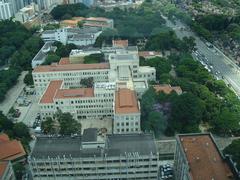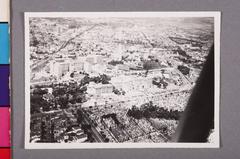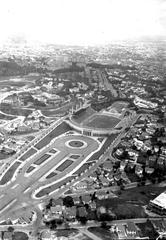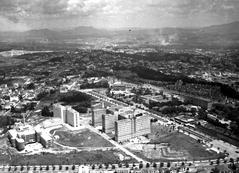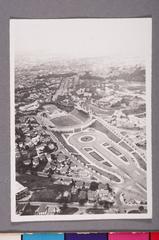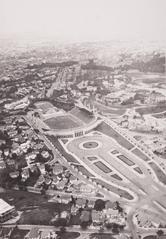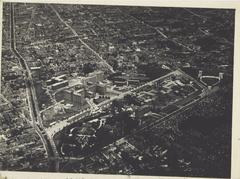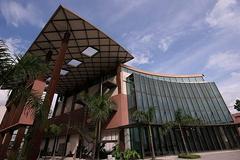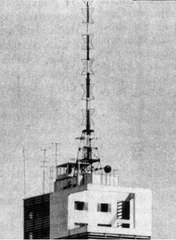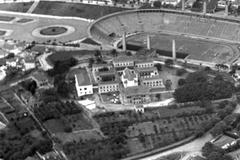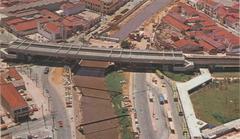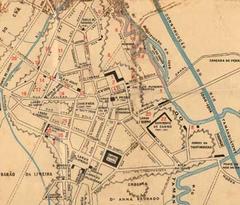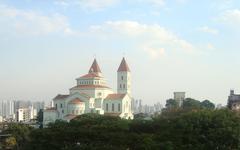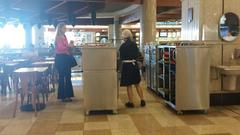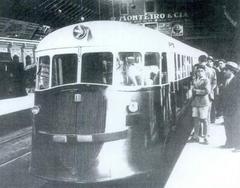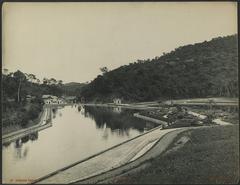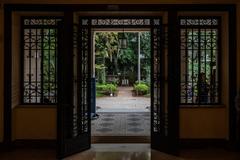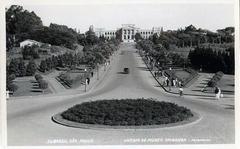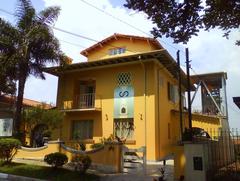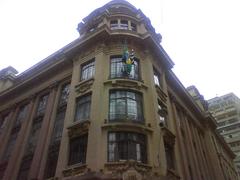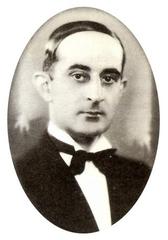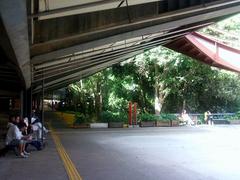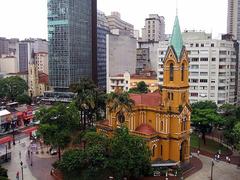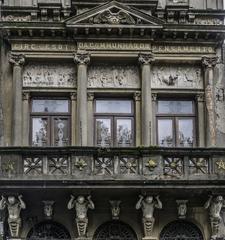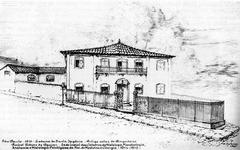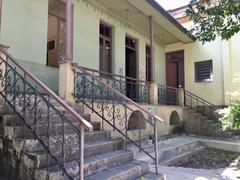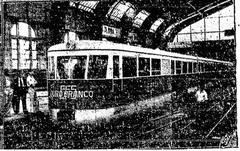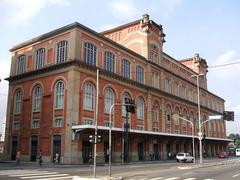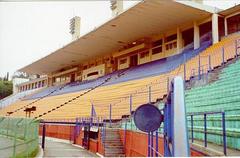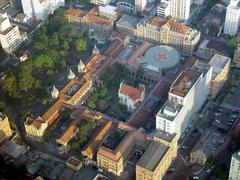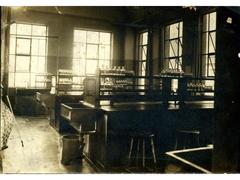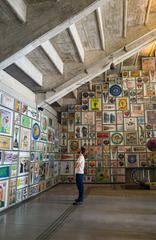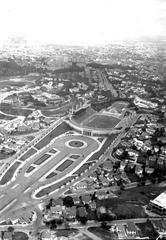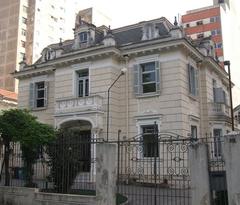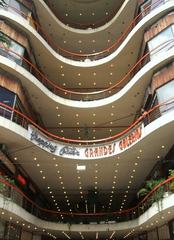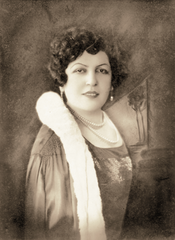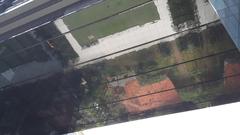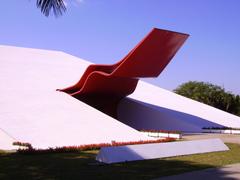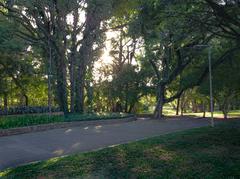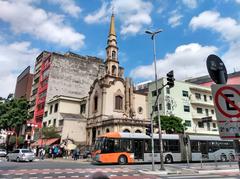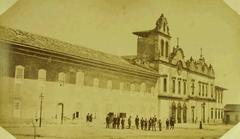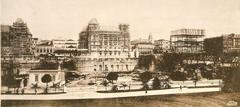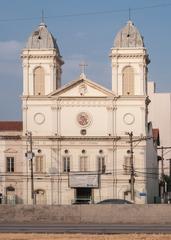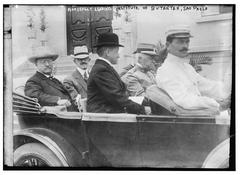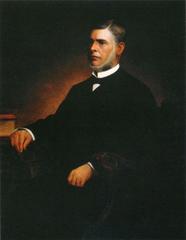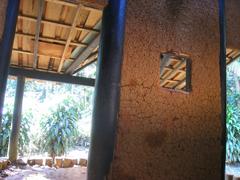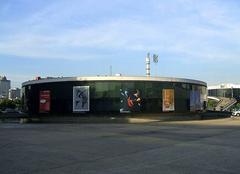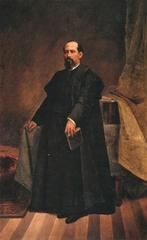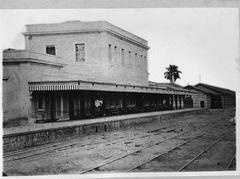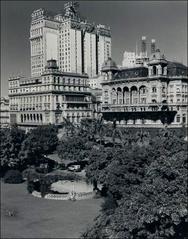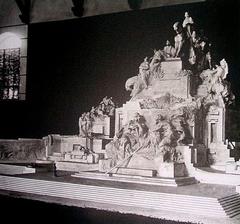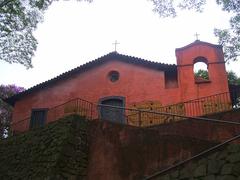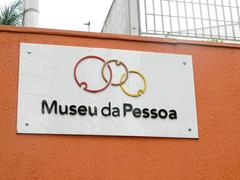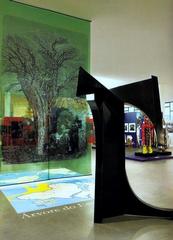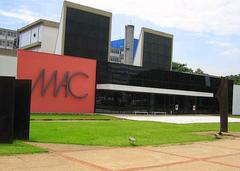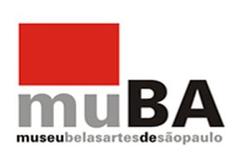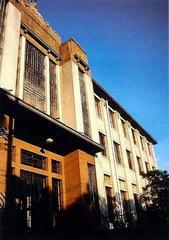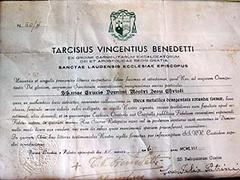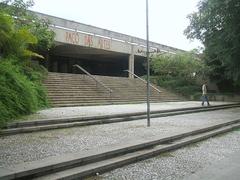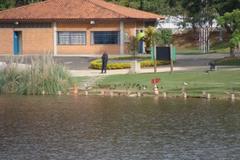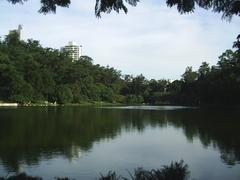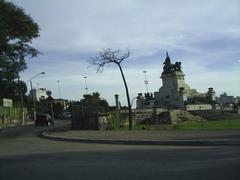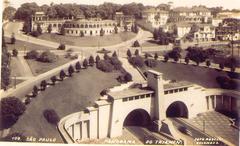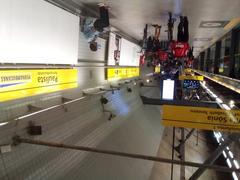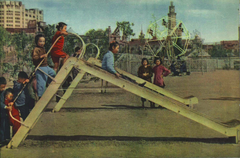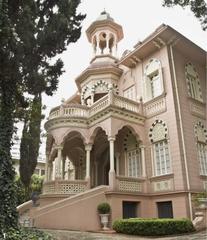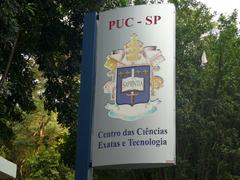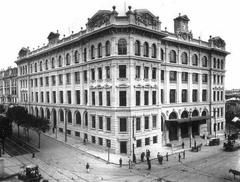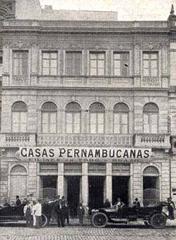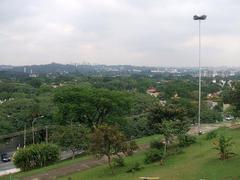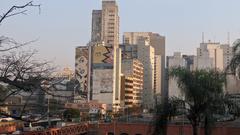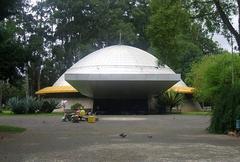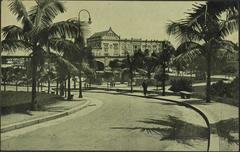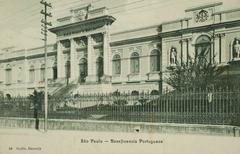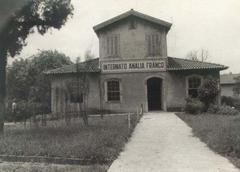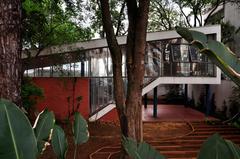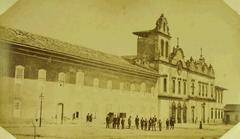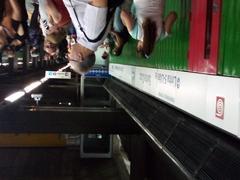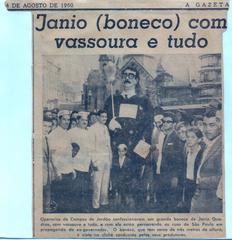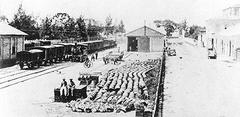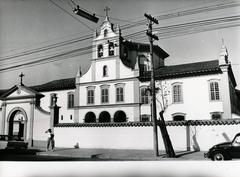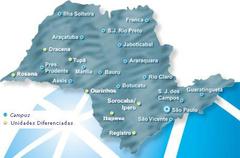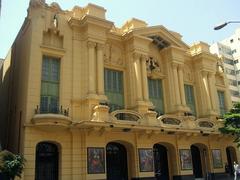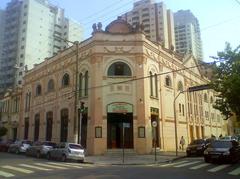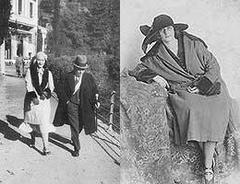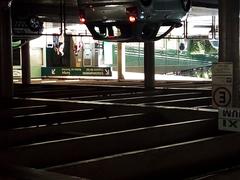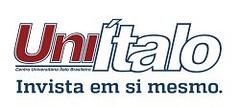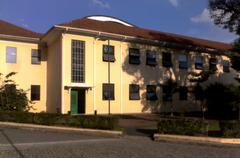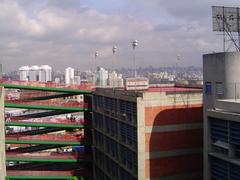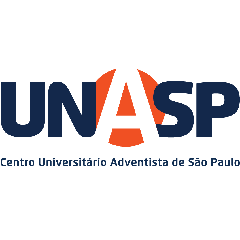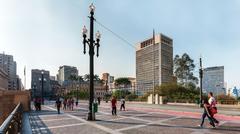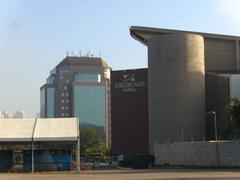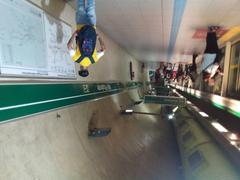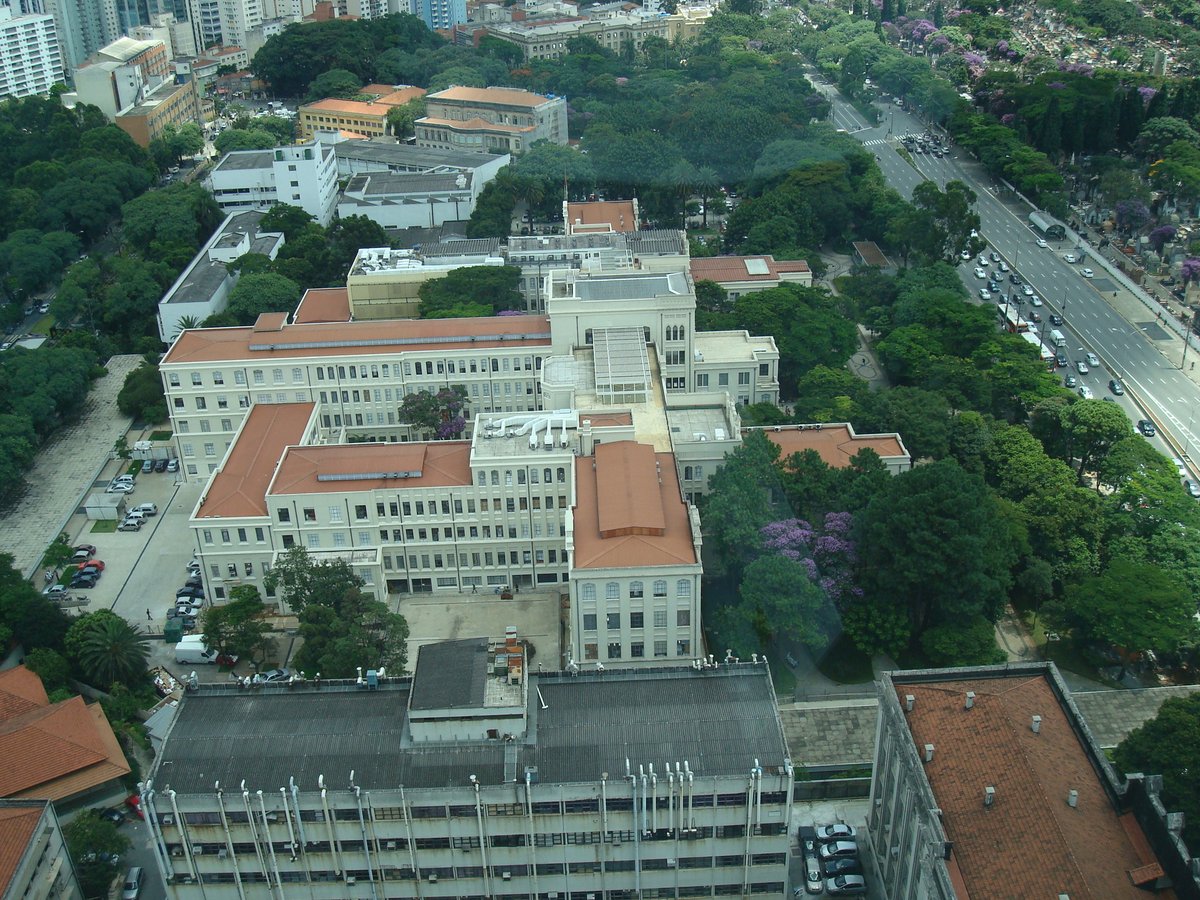
Adolfo Lutz Institute: Visiting Hours, Tickets, and Historical Significance in São Paulo
Date: 14/06/2025
Introduction
Located in the heart of São Paulo, the Adolfo Lutz Institute (Instituto Adolfo Lutz, IAL) stands as a cornerstone in Brazil’s scientific and public health landscape. Officially established in 1940, but with roots extending to the late 19th century, the Institute is named after Dr. Adolfo Lutz, a pioneer of tropical medicine whose groundbreaking research transformed the nation’s approach to epidemiology and disease control. Today, the Institute serves as both an active center for laboratory research and a monument to Brazil’s commitment to public health, offering visitors the opportunity to delve into its rich scientific legacy and ongoing contributions.
For those interested in science, history, or cultural exploration, the Adolfo Lutz Institute presents an accessible and educational experience. With free admission, guided tours, and proximity to some of São Paulo’s most celebrated cultural sites, the Institute invites visitors to discover the evolution of public health in Brazil and the enduring impact of Dr. Lutz’s work. For up-to-date information and visitor services, refer to the Adolfo Lutz Institute website and the city’s tourism portal (SPTuris).
Table of Contents
- Introduction
- Origins and Founding
- Dr. Adolfo Lutz and His Legacy
- Institutional Evolution and Expansion
- Visiting the Adolfo Lutz Institute
- Modernization and Future Directions
- Frequently Asked Questions (FAQ)
- Conclusion and Planning Your Visit
- References
Origins and Founding
The Adolfo Lutz Institute was officially created on October 26, 1940, by merging the Instituto Bacteriológico and the Laboratório Bromatológico, both vital to São Paulo’s public health infrastructure. The Institute was named to honor Dr. Adolfo Lutz, whose work in the late 19th and early 20th centuries laid the foundation for modern epidemiology and laboratory medicine in Brazil.
Dr. Adolfo Lutz and His Legacy
Dr. Adolfo Lutz (1855–1940) is revered as the father of tropical medicine in Brazil. After advanced medical studies in Europe and collaborations with luminaries such as Joseph Lister and Louis Pasteur, he returned to Brazil to lead essential research on diseases like yellow fever, leprosy, and various venomous animal bites. His rigorous scientific approach established national standards for disease control and laboratory practice, which the Institute continues to uphold to this day.
Institutional Evolution and Expansion
Early Years and Mandate
At its inception, the Institute was designated as the National Laboratory for Public Health, with responsibilities in bromatology, medical biology, pathology, research, and technical training. Its dual focus on infectious diseases and food safety positioned it as a central institution in Brazil’s fight against epidemics and foodborne illnesses.
Regional Outreach
To ensure statewide coverage, the IAL established a network of thirteen laboratories—one central location in São Paulo and twelve regional centers, including Araçatuba, Bauru, Campinas, Marília, and others. Reactivation of former centers, such as in São Carlos, is planned to further strengthen public health infrastructure.
Scientific Contributions and Impact
The Institute has played a leading role in managing health crises, from yellow fever and dengue outbreaks to the COVID-19 pandemic, where it contributed to viral diagnosis and genome sequencing. Its research directly shapes national health policies, laboratory standards, and professional training, reinforcing its status as an authority in public health.
Visiting the Adolfo Lutz Institute
Visitor Information
- Visiting Hours: Monday to Friday, 9:00 AM – 5:00 PM (some programs and tours may close at 4:00 PM).
- Closed: Weekends and public holidays.
- Admission: Entry is free for all visitors, though some special exhibits or workshops may require advance registration.
Tours and Exhibits
- Guided Tours: Available by appointment, offering in-depth insights into the Institute’s history, laboratories, and role in public health. Tours are primarily in Portuguese, with English or Spanish available upon request.
- Exhibits: Permanent and temporary exhibitions include Dr. Lutz’s original equipment, multimedia presentations on epidemic control, and displays on food safety and environmental health.
- Educational Programs: Workshops and seminars are tailored for school groups, university students, and public health professionals.
Accessibility and Facilities
- Accessibility: The Institute is wheelchair accessible, with adapted restrooms and dedicated parking for visitors with disabilities. Please notify staff in advance for specific assistance or accommodations.
- Amenities: On-site amenities include restrooms, a café, free Wi-Fi, and a gift shop with educational materials and souvenirs.
- Photography: Allowed in most exhibit areas, but restricted in active laboratory zones for privacy and safety.
Directions and Nearby Attractions
- Address: Avenida Dr. Arnaldo, 355, São Paulo, SP, Brazil.
- Getting There: Easily accessible by São Paulo Metro (Linha 3 – Vermelha), bus lines, taxi, or rideshare. On-site parking is limited; public transit is recommended.
- Nearby Attractions: Enhance your visit with trips to the Museum of the Portuguese Language, Pinacoteca do Estado, Parque da Luz, and São Paulo Museum of Art (MASP).
Modernization and Future Directions
The Adolfo Lutz Institute continues to modernize its laboratories, adopt advanced molecular biology methods, and expand its collaborations with global health organizations. Its ongoing efforts ensure that it remains at the forefront of disease surveillance and public health innovation in Brazil and beyond.
Frequently Asked Questions (FAQ)
Q: Is the Institute open to the public?
A: Yes, but visits—especially to laboratories and specialized areas—require advance booking.
Q: Are there entrance fees?
A: General admission is free; special events or workshops may require registration.
Q: Can I take photographs during my visit?
A: Yes, in public and exhibit areas. Photography is not allowed in active labs.
Q: Are tours available in English or Spanish?
A: Yes, with advance arrangement.
Q: Is the Institute suitable for children?
A: Exhibits are educational and suitable for all ages; some laboratory content is best suited for older students.
Q: Is there parking available?
A: Limited parking is available; public transportation is recommended.
Q: How can I book a guided tour or educational program?
A: Book through the Institute’s official website at least one month in advance for groups and school visits.
Conclusion and Planning Your Visit
The Adolfo Lutz Institute stands as a testament to Brazil’s enduring pursuit of scientific excellence and public health. With its engaging exhibits, guided tours, and educational programs, the Institute offers a unique window into the nation’s medical history and ongoing scientific progress. Its central location, free admission, and accessibility make it an essential stop for anyone interested in the intersection of history, science, and culture in São Paulo.
Plan your visit today to experience firsthand one of Brazil’s most important scientific landmarks. For current visiting hours, event schedules, and booking information, consult the official Adolfo Lutz Institute website and São Paulo’s official tourism portal.
References and Further Reading
- Adolfo Lutz Institute - São Paulo City Tourism
- Brazilian Ministry of Health - Historical Institutions
- Museum of the Portuguese Language
- Discovering the Adolfo Lutz Institute: History, Public Health Legacy, and Visitor Information, 2025
- Adolfo Lutz Institute Visiting Guide: Hours, Tickets, and What to See at This São Paulo Historic Site, 2025
- Visiting the Historic Adolfo Lutz Institute in São Paulo: Hours, Tickets, and Visitor Guide, 2025
- Visiting the Adolfo Lutz Institute: Hours, Tours, and Educational Programs in São Paulo, 2025
For a virtual tour, photo galleries, and interactive maps, visit the Institute’s official website. Stay connected via social media for updates on events and educational offerings.
